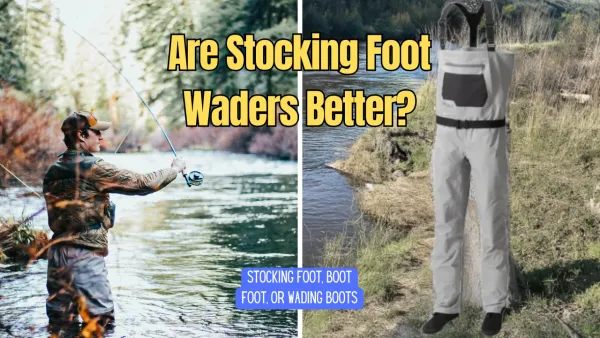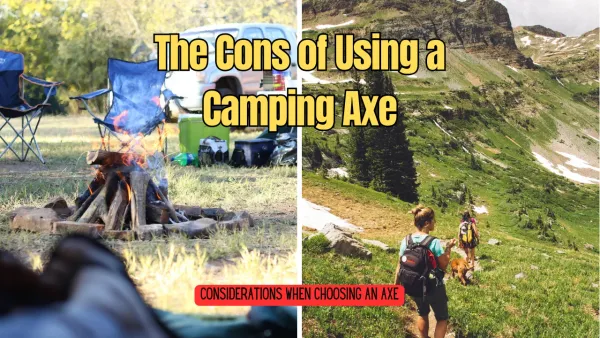Camping is an adventure that reconnects us with nature, but when the temperature drops, staying warm becomes a priority. This comprehensive guide will explore the safest options for tent heating, ensuring you stay cozy without compromising safety.
Key Takeaways:
- Understand the types of heaters suitable for tent use and their safety features.
- Learn about the risks associated with using heaters in tents and how to mitigate them.
- Discover practical tips for staying warm while minimizing fire risk and carbon monoxide exposure.
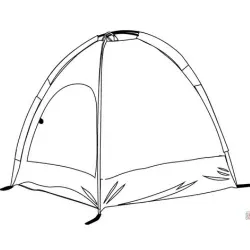
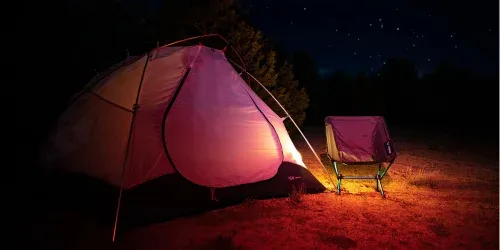
The Quest for Warmth: Choosing the Right Tent Heater
When the cold weather sets in, a reliable tent heater can make all the difference. The best tent heaters are designed with safety in mind, offering features like automatic shut-off, oxygen depletion sensors, and sturdy construction to prevent tipping. Portable heaters, especially those made for tent environments, are often the go-to choice for campers.
Propane Heaters: A Popular Choice for Campers
Propane tent heaters are a common sight on camping trips due to their portability and ease of use. Models like the portable Mr. Heater Buddy heater have become synonymous with camping heaters, offering radiant heat and designed with safety features such as low oxygen sensors. However, it's crucial to never leave a propane heater unattended and ensure adequate ventilation to prevent carbon monoxide poisoning.
The Safety of Portable Tent Heaters
Portable tent heaters are specifically designed for the unique environment of a tent. They often come with safety features like tip-over protection and oxygen depletion sensors. When choosing a portable heater, look for one that's intended for the size of your tent and follow all manufacturer guidelines.
Carbon Monoxide: The Invisible Threat
One of the most significant risks when using heaters inside a tent is carbon monoxide poisoning. This deadly gas can accumulate quickly in an enclosed space. To mitigate this risk, always choose a heater with built-in safety features and never use a fuel-burning heater without proper ventilation.
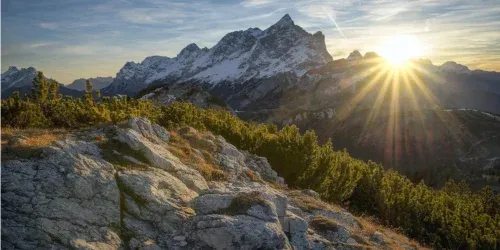
Electric Options
Low Power Electric Heaters
For those with access to electricity, low power electric heaters can be a safe alternative. They eliminate the risks associated with fuel burning heaters, such as carbon monoxide production. Compact heater models are available that are suitable for the confined space of a tent, but always ensure they are designed for such use.
Blankets and Wraps
Experience the outdoors in comfort with an electric or battery-powered blanket that brings the coziness of your bed to the campsite. As the stars shine and the campfire flickers, stay warm without layering on every sweater. These blankets provide ideal temperature control, ensuring a peaceful sleep even when the night turns cool. Perfect for tents, RVs, or under the open sky.
Wood Burning Stoves: A Rustic Approach
For a more traditional camping experience, a wood burning stove can be used in a canvas tent equipped with a stove jack. These stoves provide ample heat and the charm of a crackling fire. However, they should only be used in tents designed for this purpose to minimize fire risk.
Kerosene Heaters: Proceed with Caution
Kerosene heaters can generate a lot of heat, but they also produce carbon monoxide and water vapor, which can lead to condensation inside a tent. If you opt for a kerosene heater, ensure it's designed for indoor use and that your tent is well-ventilated.
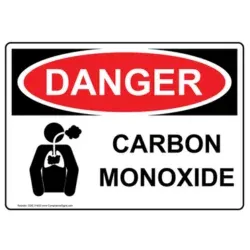
Heat Output and Tent Size: Finding the Balance
The heat output of a heater should match the size of your tent. A powerful heater in a smaller tent can quickly become overwhelming, while a compact heater might struggle to warm a large space. Calculate the square inches of your tent and compare it to the heater's specifications.
Staying Warm Without Heaters
Sometimes, the best way to stay warm is to avoid heaters altogether. Layering up in a sleeping bag rated for the temperature, using hot water bottles, and insulating yourself from the cold ground can keep you warm without the need for a heater.
Embracing Layered Clothing: A Non-Electrical Approach to Tent Warmth
When considering how to stay warm during cold weather camping, sometimes the simplest solutions make all the difference. Layered clothing is a tried-and-true method that can complement your tent heater. By wearing multiple layers, you trap air between them, which your body warms up, creating an insulating effect. This technique is especially useful when you're active around the campsite or tucked into your sleeping bag for the night. It's a portable, no-fuss strategy that doesn't involve any risk of carbon monoxide or fire risk.
The beauty of layered clothing is its adaptability. You can easily add or remove layers to regulate your body temperature, whether you're inside your canvas tent or out in the open air. Materials like wool and synthetic fibers are excellent for base and mid-layers as they retain warmth even when wet and wick away moisture. For the outer layer, a windproof and waterproof jacket can shield you from the elements. This approach, combined with a compact heater or hot water bottles, can ensure you remain toasty without the need for a powerful heater running through the night in your smaller tent.
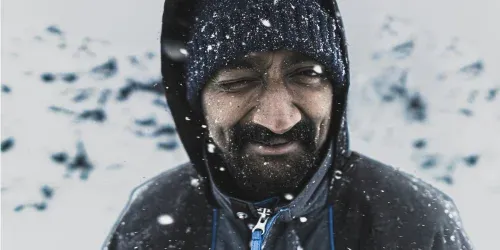
Safety First: Features to Look For
When shopping for a tent heater, prioritize safety features. Look for heaters with an automatic shut-off feature, a sturdy base to prevent tipping, and an oxygen depletion sensor. These features are crucial for safe use inside a tent.
Ventilation: The Key to Safe Heating
Adequate ventilation is essential when using any heater inside a tent. Ensure there's a flow of fresh air to prevent the buildup of carbon monoxide and moisture. Even with electric heaters, ventilation can help manage condensation.
The Risk of Leaving a Heater Running Unattended
Never leave a heater running unattended in a tent. The risk of fire or carbon monoxide buildup is too great. If you need to leave the tent, turn off the heater first.
Best Practices for Using Heaters in Tents
Always follow the manufacturer's instructions when using a heater. Keep the heater on a flat surface, away from flammable materials, and ensure the tent fabric is not touching the heater. Regularly check the heater for any signs of damage or malfunction.
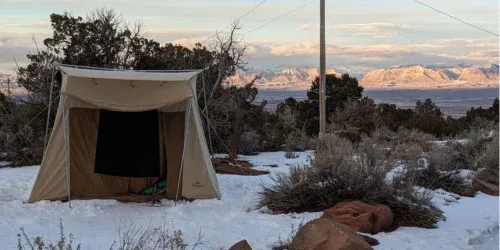
The Role of Insulation in Tent Heating
Insulating your tent can reduce the need for a heater. Use a ground cover to insulate against the cold ground, and consider using an insulated tent floor or a four-season tent designed for colder temperatures.
The Importance of Heater Maintenance
Regular maintenance of your heater is essential for safe operation. Check for blockages, clean filters, and inspect for wear and tear. Proper maintenance can prevent accidents and extend the life of your heater.
Alternatives to Traditional Tent Heaters
Explore alternatives like heated blankets, electric blankets, and even body heat-reflecting sleeping bag liners. These can provide warmth without the risks associated with space heaters.
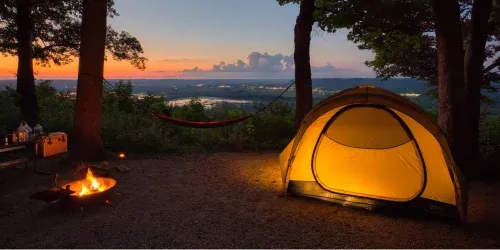
Summary
Choosing the right heater for your tent requires careful consideration of safety, size, and heat output. Propane heaters with safety features, low power electric heaters, and wood stoves for canvas tents are all viable options. Remember to prioritize ventilation, never leave a heater unattended, and consider non-heater options for staying warm. By following these guidelines, you can enjoy a comfortable and safe camping trip even in cold weather.
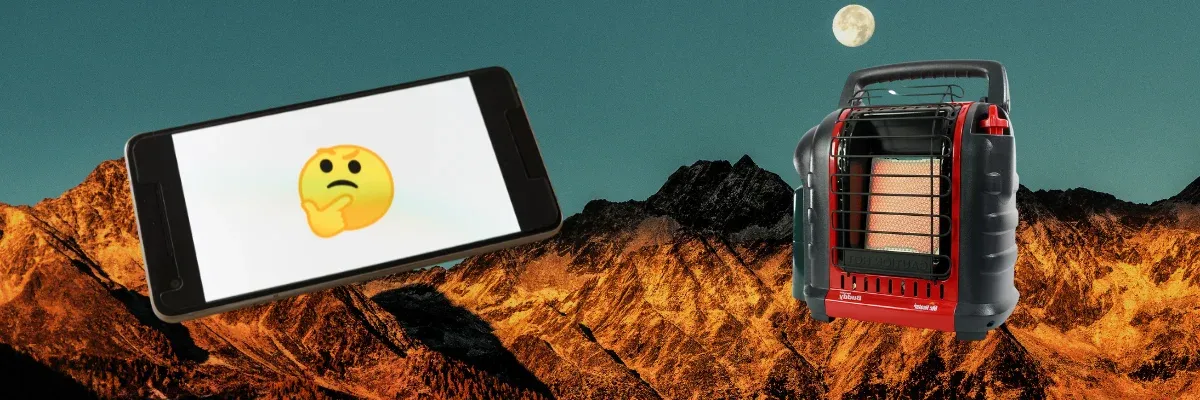
FAQs
Can I use a regular space heater in my tent?
It's not recommended to use a regular space heater in a tent due to the fire risk and potential for carbon monoxide poisoning. Always choose a heater designed for tent use with the appropriate safety features.
How can I ensure my tent is well-ventilated when using a heater?
Ensure that there are openings or vents in your tent that allow for a flow of fresh air. Follow the heater's instructions for required ventilation and consider leaving a flap partially open if safe to do so.
What should I do if I suspect carbon monoxide is present in my tent?
If you suspect carbon monoxide buildup, immediately turn off the heater, exit the tent, and seek fresh air. If anyone is experiencing symptoms of carbon monoxide poisoning, such as headache, dizziness, or nausea, seek medical attention right away.
Q. What are the risks of using a wood stove in a tent?
Using a wood stove, or any type of tent heater unattended, poses several risks. These include the potential for fire hazards, carbon monoxide poisoning, and damage to the tent fabric or surrounding area. It's crucial to closely monitor a wood burning stove or wood stove while it's in operation to mitigate these risks and ensure safety during camping or outdoor activities.





